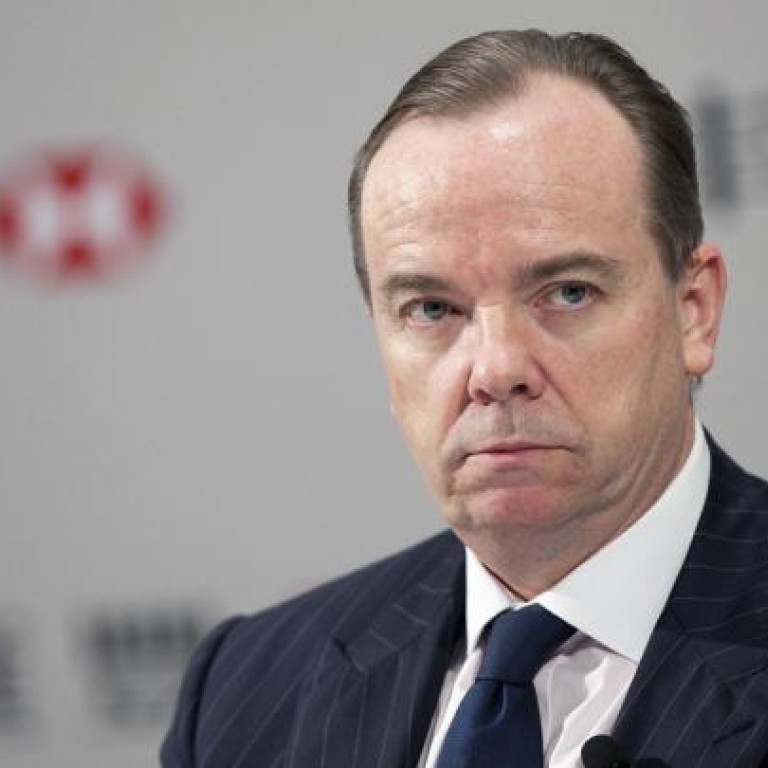
HSBC's Gulliver becomes poster boy for Brobdingnagian bonuses
News of HSBC chief's fat pay cheque put him in the spotlight as politicians and the public debated restricting the maximum size of bankers' bonuses
Let's talk about money.
HSBC just announced disappointing results for 2012, a year full of bad news for the global bank founded in Hong Kong and Shanghai.
Despite bad results, chief executive Stuart Gulliver still secured a bonus of £1.95 million (HK$22.7 million) for last year. His total compensation came to HK$109 million, including the release of deferred bonuses from previous years. For comparison, Gulliver's total compensation in 2011 was HK$82 million.
Unfortunately for Gulliver, the announcement of HSBC's results and his fat bonus came around the time Switzerland, traditionally Europe's staunchest bastion of free-market capitalism, announced it would rein in executive pay, after voters backed pay curbs in a referendum. Media and analysts linked Gulliver's package and Switzerland's latest move in a debate over executive compensation.
To be fair, Gulliver is not alone. He is just a poster boy for rich bankers. Don't get me wrong. I am not saying we should hate rich bankers. I am just wondering if we should get back to the basics: to link your payroll to your performance, which can be measured by your division's contributions or your company's general results.
I believe HSBC thinks of itself as an employer that rewards employees on their performance rather than operating on the childish logic that because you are the chief executive, you should get paid more than anyone else. It is not just Switzerland that is reining in big banks. The European Union is also edging closer to strict limits on bank bonuses, while many other European countries are also acting to curb pay.
There is also a growing debate in China over whether senior executives at state-owned enterprises, in particular in de facto monopoly sectors such as banking, oil and electricity, are overpaid.
According to my intelligence, the monthly salary for Shanghai's mayor might be about 15,000 yuan (HK$18,700), though, of course the mayor has non-cash benefits like a free car and government housing.
In Hong Kong, it is unlikely the government will initiate a new law to limit bankers' pay, given the city's long-standing free-market model. And Hong Kong is not Switzerland - any kind of referendum in the city would make Beijing nervous.
In the end, it is up to bankers themselves to solve the growing public concern about bankers' pay. To be overpaid is, of course, not a crime but more a matter of ethics. A survey last year found most people still believed ethical issues remained the biggest challenge facing the financial industry since the 2008 global financial crisis. What did we really learn from the crisis?
When I talked to some HSBC bankers privately, my gut feeling was that many of them tried to forget what happened to the bank last year. Their thinking is, whatever happened just happened, and let's move on, so don't ask me about money laundering again.
One HSBC banker jokingly asked me: "You think it is just us? We were just unlucky. So was Standard Chartered in the US."
He is right, to some extent. After all, it may not be just Gulliver who is overpaid, but the whole industry. Gulliver was just the unlucky one to be caught in the media spotlight.

